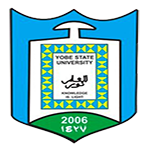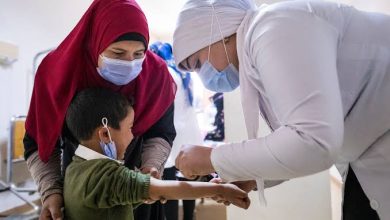Yobe State University Nursing Science
Yobe State University Nursing Science:As a nursing student at Yobe State University in Nigeria, you have embarked on a challenging yet rewarding course of study. The rigorous training and education you will receive over the next several years will provide you with the knowledge and skills to pursue a career as a professional nurse. The Yobe State University Department of Nursing Science aims to produce nurses who demonstrate competence, compassion, and a commitment to excellence in patient care.
The nursing program at Yobe State University is designed to prepare you to meet the diverse health needs of patients and communities. You will gain theoretical knowledge and practical experience through classroom learning, skills labs, simulations, and clinical rotations. By the time you graduate, you will have a strong scientific foundation in nursing and be ready to pass the Nursing and Midwifery Council of Nigeria professional licensing exam.
With a degree from the Yobe State University Nursing Science program, you will have the opportunity to work as a nurse across many areas of healthcare. Whether you wish to work in a hospital, clinic, nursing home or other medical facility, your nursing education will enable you to provide skilled and empathetic care to those who need it most. The program will equip you to positively impact human lives in your community and beyond.
Overview of Yobe State University Nursing Science Program
The Nursing Science program at Yobe State University aims to prepare students for a career as a registered nurse. The program combines theoretical learning with practical experience. Students learn nursing skills, medical knowledge, and professional development.

The 4-year BSc Nursing Science degree program complies with the Nursing and Midwifery Council of Nigeria’s standards for education. The curriculum includes foundation courses in science and liberal arts as well as core nursing courses. Students take classes in areas such as:
- Anatomy and Physiology
- Microbiology
- Psychology
- Fundamentals of Nursing
- Medical-Surgical Nursing
- Maternal and Child Health Nursing
- Community Health Nursing
Students gain practical experience during clinical placements at local healthcare facilities. The program utilizes a competency-based approach, so students must demonstrate key nursing competencies before graduating.
Graduates of the Yobe State University Nursing Science program are prepared to become registered nurses in Nigeria. They have a strong scientific knowledge base and are skilled in providing compassionate, evidence-based nursing care. The program aims to develop nursing professionals who can help address the health needs of local communities.
With a nursing degree from Yobe State University, graduates have a pathway to career opportunities in hospitals, community health centers, nursing homes, and other healthcare settings. Some may pursue graduate studies to advance their nursing career.
Admission Requirements for Yobe State University Nursing Science
To be admitted into the Yobe State University Nursing Science program, you must meet the following requirements:
1. Academic Requirements
Applicants must have completed secondary school education and obtained at least five credits in English Language, Mathematics, Physics, Chemistry and Biology at not more than two sittings.
2. Age Requirement
Applicants must be at least 17 years old at the time of admission. There is no upper age limit.
3. Registration and Application
- Apply online at the university portal and upload the required documents.
- Documents needed are:
- Original copies of credentials (O’level results)
- Birth certificate/Sworn affidavit
- 4 passport photographs
- Printout of completed online application form
4. Aptitude Test
Applicants will sit for an aptitude test to determine their suitability for the nursing program. Those who pass the test will proceed to an oral interview.
5. Acceptance and Enrollment
Successful candidates will receive admission letters to enroll in the Department of Nursing Science. Enrollment and payment of all necessary fees will then follow to complete the admission process.
With the right qualifications and by following the admission procedures, you’ll be on your way to an exciting career in nursing at Yobe State University.
Course Structure and Curriculum
The Nursing Science program at Yobe State University follows a standard course curriculum to prepare students for a career as a Registered Nurse.
Course Structure
The program is 4 years in length, with each year divided into two semesters. Courses focus on both theoretical knowledge as well as practical clinical experience.
- Year 1 introduces foundational nursing concepts, anatomy, physiology, pathology, pharmacology, and medical-surgical nursing. Students complete clinical placements in hospitals and community health centers.
- Year 2 delves deeper into areas like mental health, pediatrics, obstetrics, and gynecology. Students gain valuable experience through clinical rotations in psychiatric hospitals, schools, and maternal health clinics.
- Year 3 focuses on community health, nursing research, and nursing management. Students participate in outreach programs, conduct research projects, and take on leadership roles during clinical placements.
- Year 4 prepares students for the nursing profession. Courses cover nursing ethics, advanced medical-surgical nursing, and nursing informatics. Students complete preceptorships to gain experience as registered nurses.
Upon successful completion of the program, students are awarded a Bachelor of Nursing Science (B.N.Sc.) degree and are eligible to become Registered Nurses. Continuing education and certifications can open up career opportunities in advanced practice nursing, teaching, administration, and research.
The curriculum at Yobe State University Nursing Science program provides students with a solid foundation in nursing theory and practice. Hands-on clinical experience, knowledgeable faculty, and a supportive learning environment prepare students to become competent and caring Registered Nurses.
Clinical Training and Practical Experience
Clinical training and practical experience are essential components of the nursing program at Yobe State University. Students gain valuable on-the-job experience through clinical placements at local hospitals and health care facilities.
1. Clinical Placements
Clinical placements provide students the opportunity to put their knowledge and skills into practice in a real-world setting. Students complete rotations in various departments such as obstetrics, pediatrics, surgery, and geriatrics. Under the supervision of licensed nurses, students assist in providing direct patient care such as bathing and feeding patients, administering medications, and monitoring vital signs.
These clinical placements equip students with practical experience that complements their theoretical learning. By interacting with patients and healthcare professionals, students develop communication and interpersonal skills that will benefit them in their nursing careers. The hands-on experience also helps to build students’ confidence in their abilities.
2. Practicum
In their final year, students complete a practicum or internship at a local healthcare organization. The practicum allows students to take on more responsibility as they put into practice all they have learned over the course of the program. Students work directly under the guidance of a nurse preceptor, who mentors and evaluates students.
The practicum is an opportunity for students to gain valuable experience in a specialty area of interest. Students can opt to complete their practicum in areas such as critical care, community health, or mental health nursing. The practicum prepares students for the transition to professional practice and builds essential skills for nursing in Nigeria.
Upon completion of all required courses and practical components, graduates of the Bachelor of Nursing Science program at Yobe State University are eligible to sit for the Nursing and Midwifery Council of Nigeria professional licensing examination. With a license, graduates can pursue careers as registered nurses, nurse educators, or nurse administrators.
FAQs
Frequently Asked Questions
1. What programs does the Nursing Science Department offer?
The Nursing Science Department at Yobe State University offers several accredited nursing programs, including:
- Bachelor of Nursing Science (B.N.Sc.)
- Postgraduate Diploma in Nursing Science (PGDN)
- Master of Nursing Science (M.N.Sc.)
- Doctor of Philosophy in Nursing Science (Ph.D.)
2. What are the admission requirements for the B.N.Sc. program?
To be admitted into the Bachelor of Nursing Science program, applicants must:
- Have a minimum of five credits in SSCE/WASC/NECO, including English Language, Mathematics, Physics, Chemistry and Biology at not more than two sittings.
- Score at least 180 in the 2020 UTME and chose Yobe State University as first choice.
- Be at least 17 years of age.
- Submit a completed application form, including statement of purpose and two letters of recommendation.
- Meet additional departmental requirements, including an entrance exam and interview.
3. How long is the B.N.Sc. program?
The Bachelor of Nursing Science program at Yobe State University is 4 years (8 semesters) in length. In addition to coursework, students complete practical experiences at hospitals, health centers, and clinics. Total credit hours for program completion is 129 credits.
4. What career opportunities are available to graduates?
Graduates of the B.N.Sc. program can pursue careers as:
- Registered Nurses (RNs) in hospitals, clinics, nursing homes, and other healthcare facilities.
- Nurse Educators at nursing schools and universities.
- Nurse Researchers at healthcare organizations and research institutions.
- Public Health Nurses promoting health and wellness in communities.
Graduates may also choose to continue their education with postgraduate degrees to open up more advanced career opportunities.









